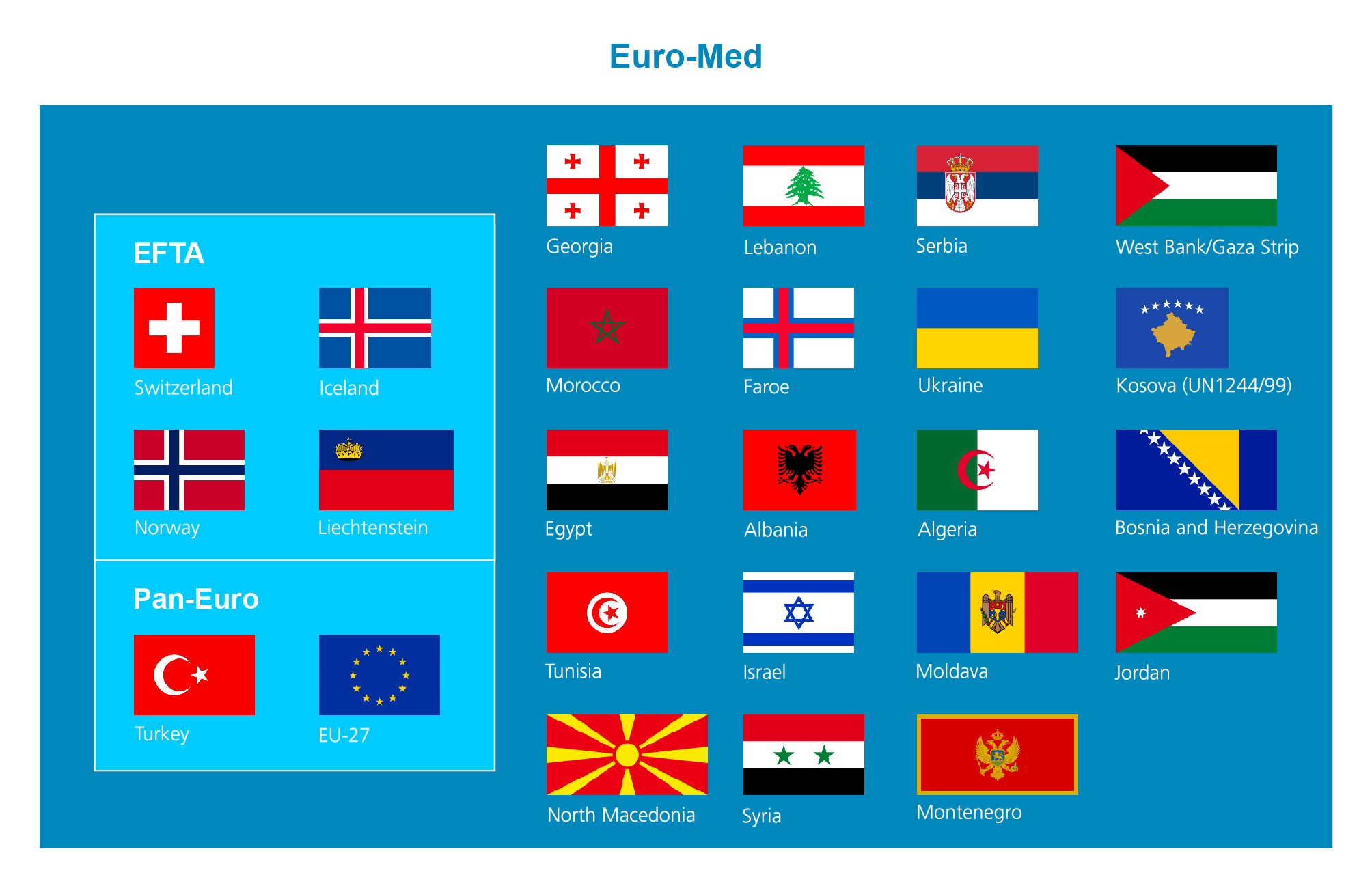

Update: On 7 December 2023, the Joint Committee of the PEM Convention adopted the new and modernised rules of origin designed to promote trade between the Parties to the PEM Convention. The rules of origin will enter into force on 1 January 2025 and thus modernise all preferential trade agreements between the 24 PEM trading partners by making the corresponding rules of origin in these agreements more flexible and business-friendly. The transitional rules (see below) will no longer apply from this date and will be replaced by the rules of origin of the revised PEM Convention. Further information on the adoption of the revised PEM Convention can be found here.
The majority of the contracting parties, including Switzerland, have decided to apply the revised rules bilaterally and as of 1.9.2021 on a transitional basis (so-called "transitional rules"). This is intended to allow the companies of these contracting parties to already benefit from the revised rules of the Convention, making the administration of the rules of origin more flexible and simpler. The transitional bilateral application («transitional period») will end on 31 December 2024, as the revised PEM Convention will enter into force on 1 January 2025. Due to the bilateral approach, the free trade agreements (FTA) in the PEM zone must be adapted accordingly. The transitional rules are already applicable in the following FTAs of Switzerland / EFTA:
During the transitional period, exporting companies can apply either the rules of origin of the current Convention or the revised rules of origintransitional rules. However, they must determine which rules they will choose before calculating origin.
In principle, the cumulation zones of the PEM Convention and the transitional rules are to be regarded as two separate zones. Thus, the transitional rules do not provide that proofs of origin issued under the PEM Convention can be used for cumulation under the transitional rules. On 7 December 2023, the PEM Parties decided to introduce so-called "permeability" so that companies that apply the transitional rules can also cumulate if the supplier issues a proof of origin in accordance with the rules of origin of the current PEM Convention. Switzerland will now adapt its FTAs as soon as possible, particularly the one with the EU. Changes will be communicated by means of a circular.
At the formal level, a distinction is made between proofs of origin issued under the current PEM Convention and those issued under the revised rules. The latter must be supplemented with the English reference "TRANSITIONAL RULES" (for movement certificates EUR.1) or "according to the transitional rules of origin" (origin declaration). It is the responsibility of companies to ensure that input materials which have obtained preferential originating status under the (usually more liberal) revised rules are not used as preferential input materials in a production chain with cumulation under the rules of the current Convention.
For supplier's declarations issued domestically, permeability applies retroactively as of 1.9.2021 under certain conditions. Thus, supplier's declarations issued domestically in accordance with the PEM rules (recognisable by the absence of the remark "transitional rules) can be valid proofs of origin within the scope of cumulation or resale when applying the transitional rules for exports. For more information, please refer to the information sheet "Domestic supplier's declarations".
The transitional rules bring administrative simplifications, namely through the deletion of the proofs of origin EUR-MED and the standardisation of the product-specific list rules. In addition, new possibilities were created with the introduction of full cumulation, the abolition of the no-drawback rule and calculation using average values.
Information on the subject of «transitional rules» and their application can be found here: